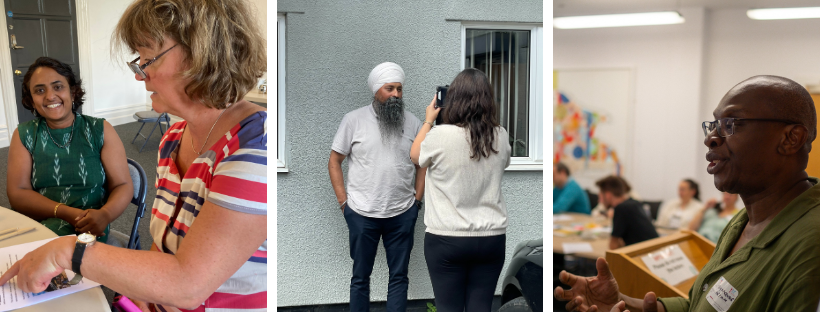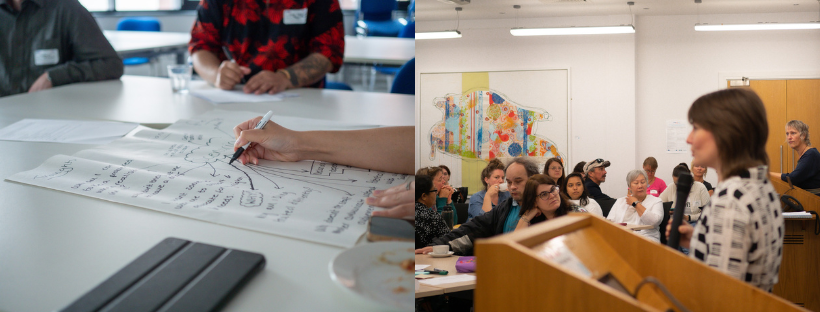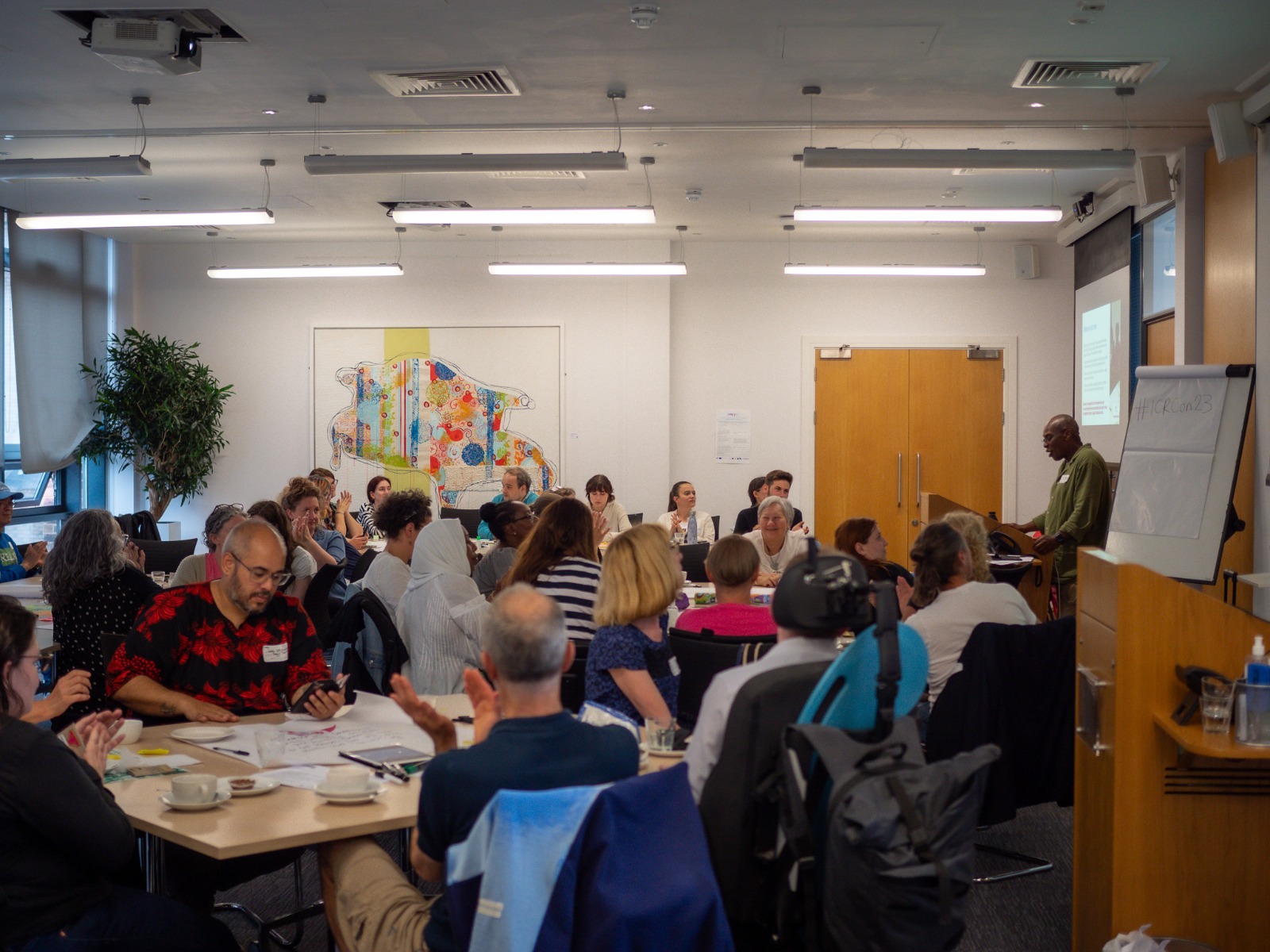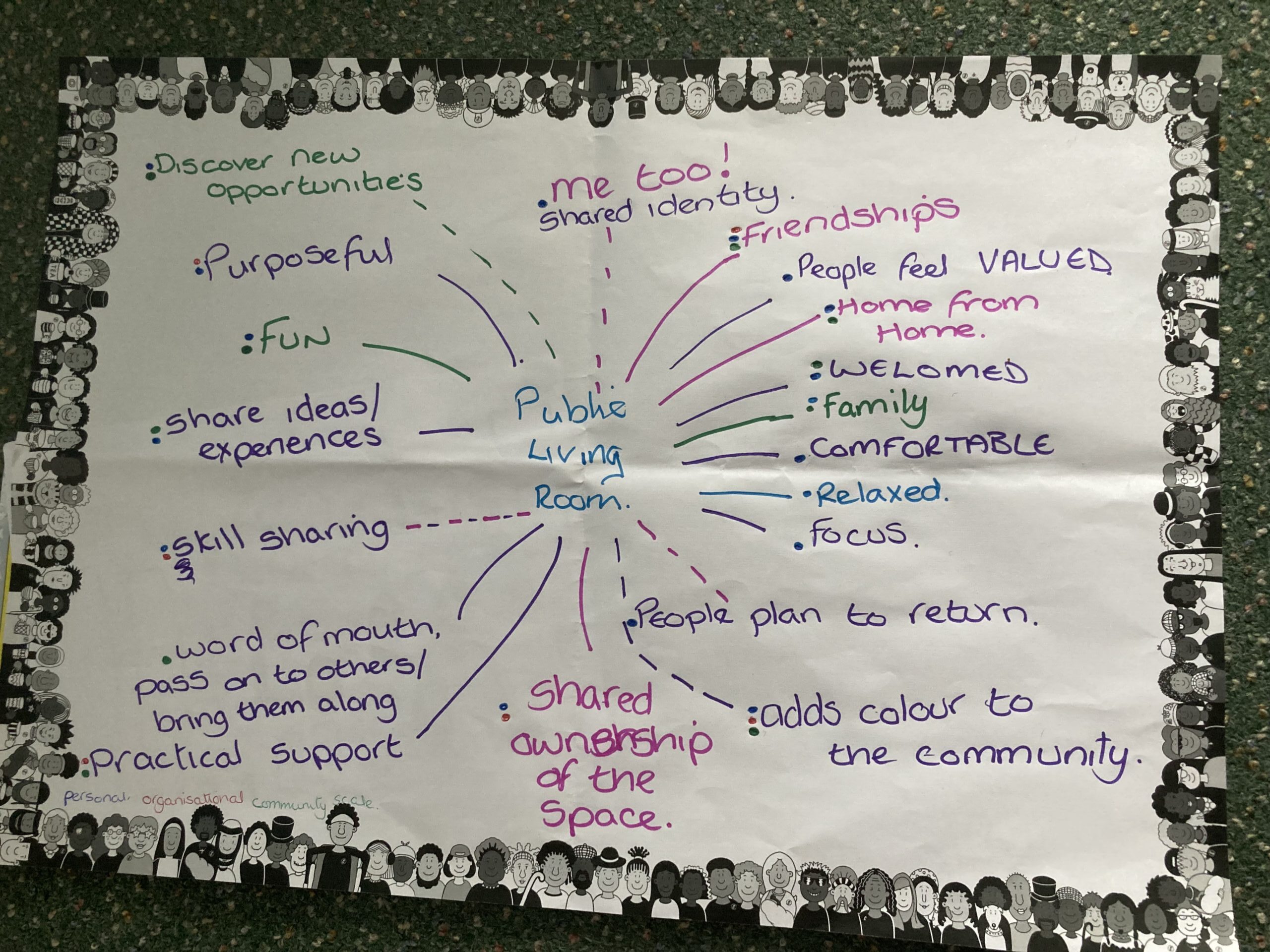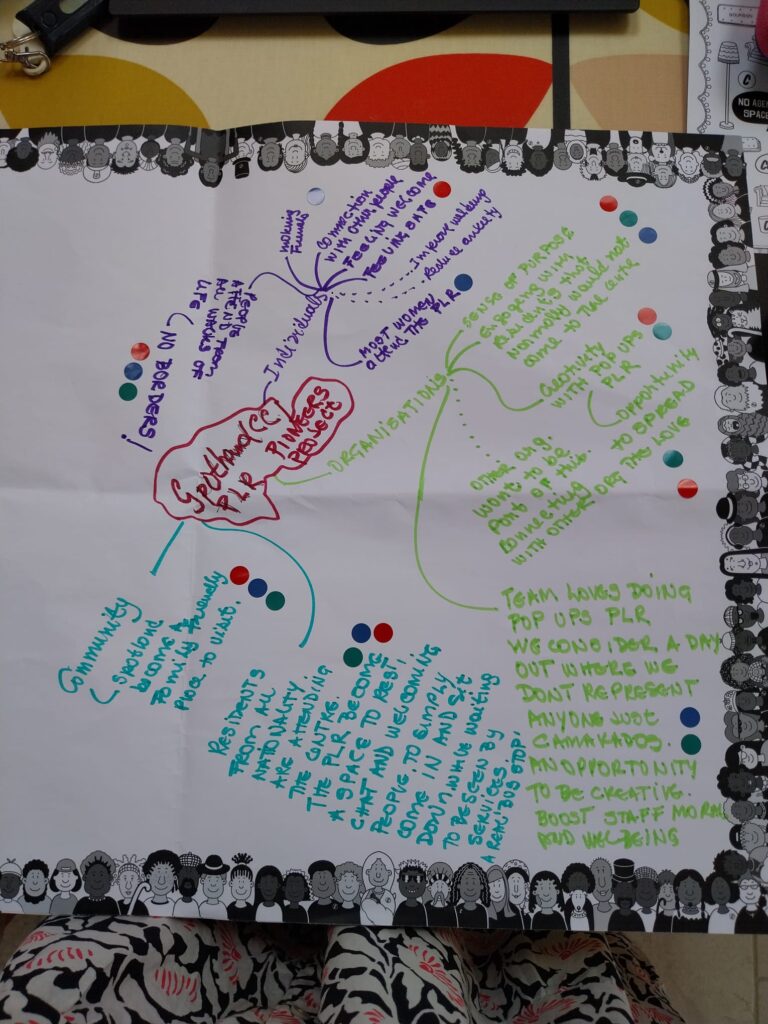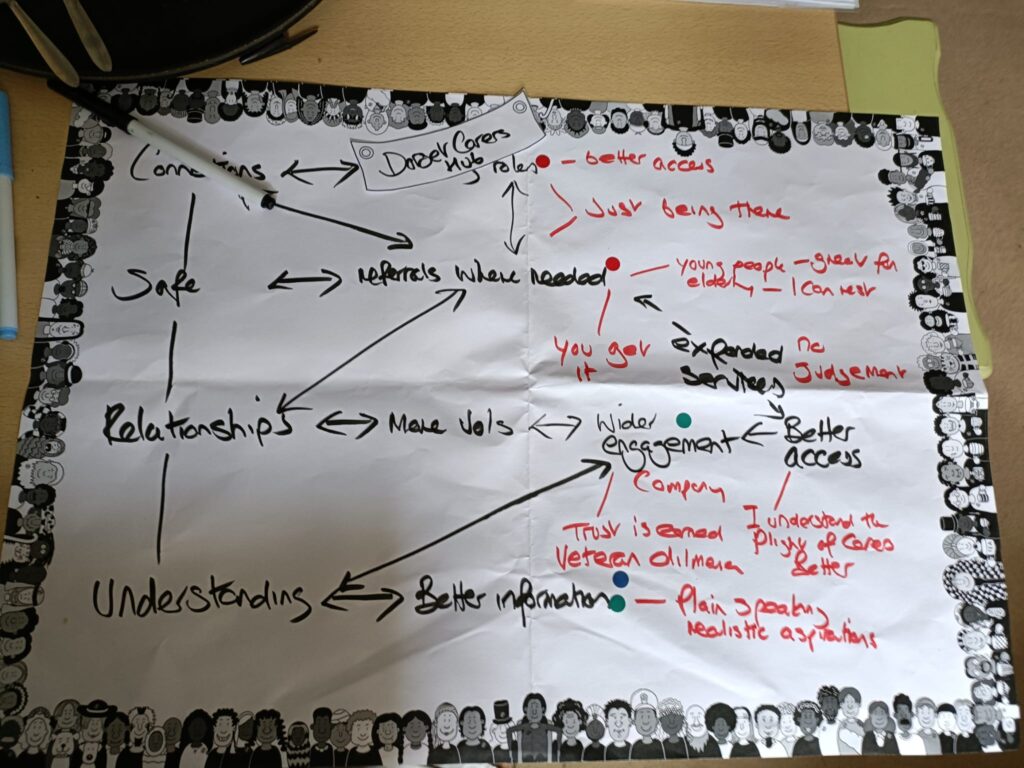CAMERADOS YEAR 2 LEARNING PARTNER FINDINGS (PART 1)
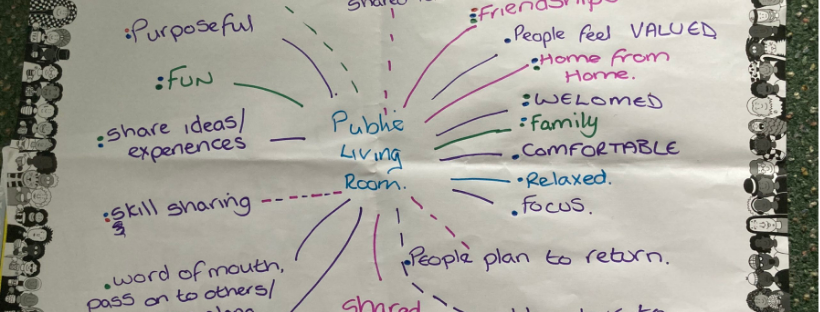
Between May and October 2023, People’s Voice Media has been delivering a series of Ripple Effect Mapping Workshops and Storytelling Sessions with members of the Camerados Public Living Room movement.
Camerados is a social movement – which really just means that there are lots and lots of people (from Baltimore to Blackpool) who think being a bit more human is a good idea. The movement started in 2015 and the main thing you’ll see them doing is opening Public Living Rooms in different communities across the world.
During November, we spent time curating the insights from the stories and Ripple Effect Mapping sessions to create a set of initial findings which we will build upon in the next round of story gathering and Ripple Effect Mapping. The findings reveal the positive impacts that Public Living Rooms have on the lives of the people who use them.
- For some people, Public Living Rooms have a transformative or healing effect, simply through offering a space where they can be themselves and verbalise what’s on their mind.
- For people who have spent time if various systems and services, Public Living Rooms provide an antidote to that. The lack of social stigma and the emphasis on not trying to fix people and just being alongside each other makes them a low-pressure environment for people used to the stresses and pressures of services.
- Public Living Rooms have demonstratively brought communities together simply through allowing people to meet each other. They grow spaces and initiatives by creating a nice space to be in.
In all, this demonstrates that people benefit from spaces – like Public Living Rooms – that are a bit more human and that allow them to be human too.
We will continue working with Camerados over the coming months to further these findings.
